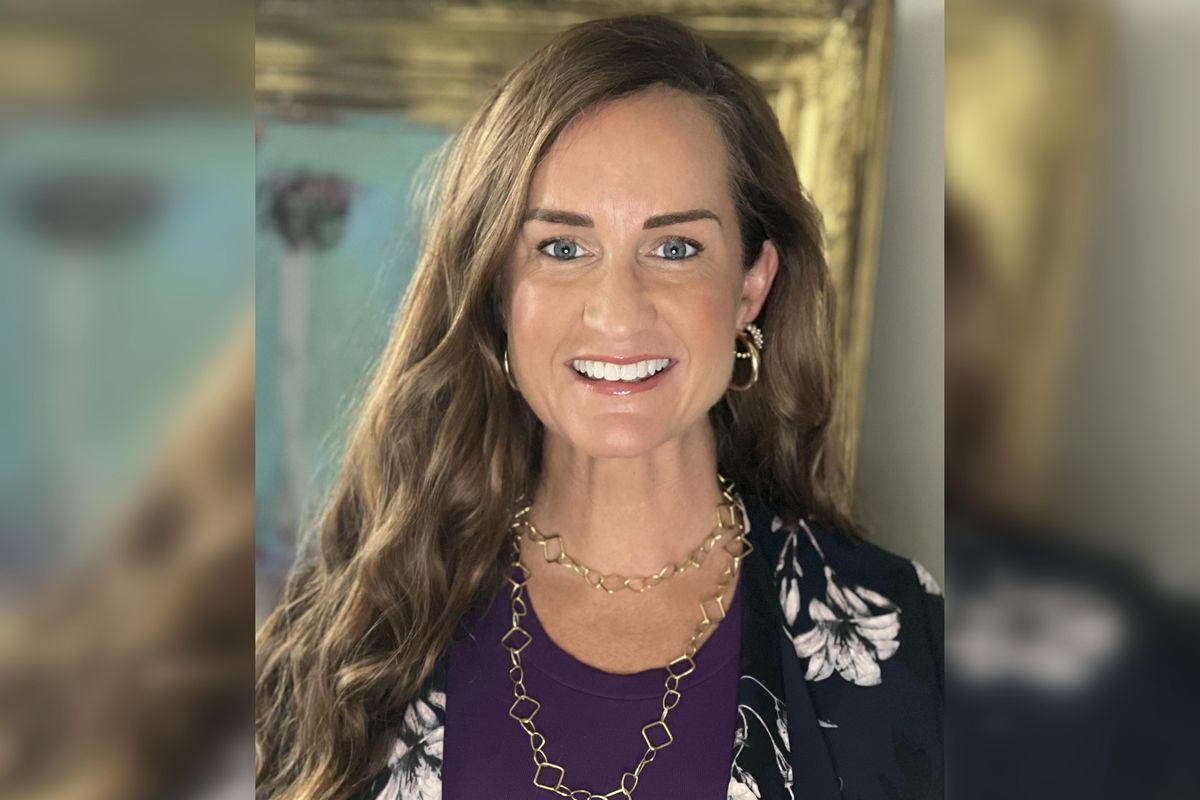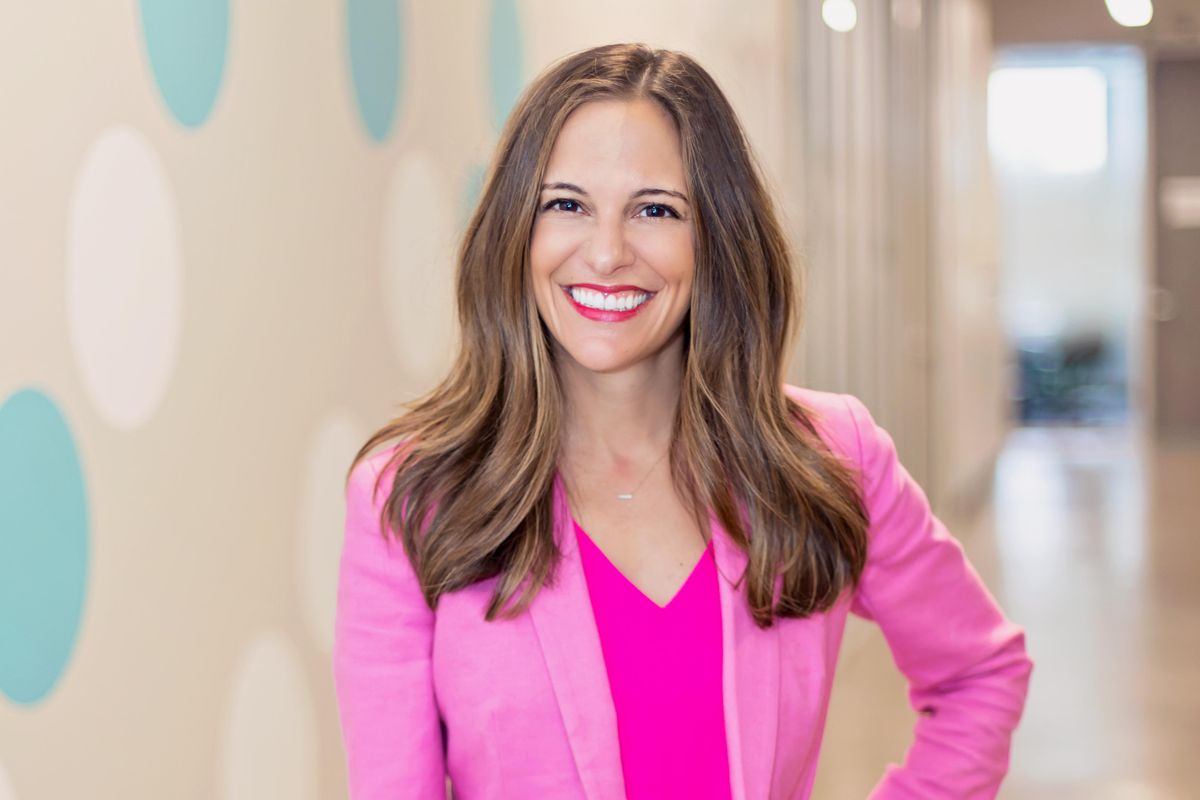Here's what companies are in the running for Houston's startup of the year
you decide
There's one category at the 2023 Houston Innovation Awards that's yet to be decided — and that's because the decision is up to you.
The People's Choice: Startup of the Year category will honor the fan favorite of this year's awards. Seven companies will be showcasing their unique technologies at the event, and attendees get to decide their fate.
Click here to secure your tickets to the November 8 event where you get to help choose the winner of this exciting category.
Blue People, helping bring ideas to life through software development expertise.

Enrique Carro, CEO of Blue People. Photo courtesy of Blue People
What's the company culture like at your company? How big of a priority is maintaining it as the company grows?
At our company, culture isn't just a buzzword; it's the heart of who we are. We have this fun concept called the "Blue Tags" where everyone picks a cool, sometimes hilarious, nickname—it's our way of saying, "Hey, we love your uniqueness!" And guess what? Fridays are special because we gather employees for a celebratory meeting where tequila shots are allowed that we call Viernes De Shots (Friday's Shots). However, it's not just about the shots; it's about building connections and recognizing our achievements as a team. Furthermore, our "Blue Principles", or what other companies call core values, guide us every day, woven into everything we do. As we grow, keeping this inclusive vibe alive is at the top of our to-do list! Cheers to a unique and awesome workplace!
How would you describe your leadership style in three words?
Adaptive, inspirational, and empowering
How has your company given back to the community in the past year or so?
In the past year, our company has been deeply committed to giving back to the community through various initiatives. We actively engaged in the Tejano Tech Summit and fostered dialogue with Tech & Tequila talks. Moreover, we dedicated our time as judges in the Young Inventors competition, encouraging and supporting young talent. Our CTO played a pivotal role by mentoring students in software engineering projects, emphasizing cloud technology, modern stack, and agile methodologies. We also proudly emerged as winners in the 50 cent G-Unity Business Lab Pitch competition and actively participated in programs like gener8tor gBeta accelerator and Codelaunch. Additionally, we extended our outreach to the academic realm, coaching and mentoring participants in events such as the Sam Houston State University Innovation Pitch Competition, where we achieved 1st place, and collaborating with Latin Venture Studio as partners. As a testament to our commitment to community engagement, we are part of the DevOpsDays Houston organization committee, contributing to a series of technical conferences. Furthermore, we play a role in The Houston Tech Rodeo, showcasing the best of the Houston startup community through conferences and friendly competitions, reinforcing our dedication to the growth and development of the community we are part of.
DrySee, innovative waterproof dressing with liquid intrusion technology.

Robert Bradley Greer is the CEO of DrySee. Photo via LinkedIn
What's the company culture like at your company? How big of a priority is maintaining it as the company grows?
DrySee has an adaptive environment with open communication and transparency. Our leadership is available to receive and provide regular feedback, and values the spirit of entrepreneurship. DrySee feels that the imaginative and engaged atmosphere is important to our growth and success.
How would you describe your leadership style in three words?
Inclusive, team-oriented, and consensus-driven.
How has your company given back to the community in the past year or so?
We donated thousands of DrySee bandages to the medical efforts in Ukraine.
Eden Grow Systems, next generation farming technologies.

Leo Barton Womack Jr is the CEO of Eden Grow Systems. Photo courtesy of Eden Grow
What's the company culture like at your company? How big of a priority is maintaining it as the company grows?
We are on a mission to bring food sovereignty to the people. Our vision is that our world is A Garden OF Eden, and we are here to serve it.
How would you describe your leadership style in three words?
Service, example, and commitment.
How has your company given back to the community in the past year or so?
We are deploying our systems into food desserts, schools, Ukraine, and around the world helping underserved communities begin their journey to food independence.
Feelit Technologies, nanotechnology for preventive maintenance to eliminate leaks, fires and explosions, increase safety and reduce downtime.

Shoshi Kaganovsky, president of North America at Feelit Technologies. Photo courtesy of Feelit
What's the company culture like at your company? How big of a priority is maintaining it as the company grows?
Culture is people-oriented. We are focusing on building a team that lasts. Diversity is key. Giving chances and creating opportunities is what will advance our world further. We believe that the human asset is the most important asset we have. It's a huge priority for us to maintain this is make sure that as we grow, our culture leads the way for us, with respect, dedication and innovation.
How would you describe your leadership style in three words?
Lead by example.
How has your company given back to the community in the past year or so?
School supplies, mentorship programs for children, sponsorship and hiring people from war zones/conflicted territories.
Fervo Energy, leveraging proven oil and gas drilling technology to deliver 24/7 carbon-free geothermal energy.

Tim Latimer, CEO and co-founder of Fervo Energy. Photo via LinkedIn
What's the company culture like at your company? How big of a priority is maintaining it as the company grows?
Fervo's culture revolves around four core values: build things that last; innovate through collaboration; do what we say we're going to do; stop and smell the roses. Taken together, these values create a highly creative, collaborative, and optimistic culture in which employees are encouraged to be open-minded, honest, and supportive. Maintaining this culture as Fervo's scales is one of the executive team's highest priorities.
How would you describe your leadership style in three words?
Visionary, determined, and collaborative.
How has your company given back to the community in the past year or so?
Fervo has joined the Real Energy Alliance of Houston and the Greater Houston Partnership to contribute to the broader Houston business and environmental community. Fervo also sponsored a class at Rice University to provide undergrads with clean energy mentorship and experiential learning opportunities. Fervo also recruited summer interns from the University of Houston Bauer College of Business.
Rhythm Energy, 100 percent renewable electricity service for residential customers in Texas.

P.J. Popovic, CEO of Houston-based Rhythm Energy. Photo courtesy of Rhythm
What's the company culture like at your company? How big of a priority is maintaining it as the company grows?
At Rhythm Energy, our company culture is defined by several key aspects: Passionate: Our team is genuinely passionate about renewable energy and our mission to make a positive impact on the planet. Collaborative: Collaboration is at the heart of our culture. We encourage cross-functional teamwork and open communication. Encouraging: We foster an environment that encourages innovation and supports employees in pursuing their ideas and initiatives. Flexibility: Our employees appreciate the flexibility we offer, allowing them to balance work and life effectively. Impact: Everyone at Rhythm Energy understands the meaningful impact our work has on the environment and society. Maintaining this culture is a top priority for us as we grow. We take proactive steps, such as quarterly surveys and team discussions, to gather feedback and implement positive changes. Our commitment to preserving this culture remains unwavering.
How would you describe your leadership style in three words?
Visionary, resilient, and approachable.
How has your company given back to the community in the past year or so?
Rhythm gives back to the community in a variety of ways. First, we have a very sustainable approach to our work environment, which promotes a remote first work culture, recycles, composts, and uses sustainable office supplies. Second, we actively participate in community service projects, whether volunteering at the Houston Food Bank, doing park clean up at Buffalo Bayou Park or planting trees at Memorial Park. Last, but not least, we partner with many local organizations, such as elementary school PTOs, youth sports clubs and performing arts education programs like Theatre Under the Stars, and really focus on giving back and educating the youth in the community, as they are the future and most impacted by our sustainable decisions today.
The Postage, a comprehensive life planning and succession software platform for families and small businesses.

Emily Cisek, CEO and co-founder of The Postage. Photo courtesy of The Postage
What's the company culture like at your company? How big of a priority is maintaining it as the company grows?
At The Postage, our company culture is all about understanding, supporting, and empowering each other. We're like a team of sailors, believing that when we lift one boat, we lift all. We value empathy, making sure we put ourselves in our customers' shoes, understanding their needs, and building solutions that truly matter. Everyone is encouraged to go that extra mile, take initiative, and embrace challenges as opportunities to learn and grow. We believe in transparency, keeping communication open, honest, and straightforward. As we grow, keeping this culture alive and thriving is a big deal for us. It's what makes us who we are, and we'll keep nurturing it because it's key to our success and how we want to make a positive mark in the world.
How would you describe your leadership style in three words?
Empathetic, transparent, and empowering.
How has your company given back to the community in the past year or so?
At The Postage, we're all about giving back and spreading kindness in the community. For the past three years, we've been honored to partner with the Smilin Rylen Foundation, a cause that truly hits home for us. Rylen's spirit is a big inspiration for us. He's a driving force behind our dedication to making a positive impact every day. So, to celebrate his life we encourage acts of kindness within our team and community. Small gestures, like helping out or sharing a kind word, mean a lot to us and embody the positivity Rylen always shared. Our commitment doesn't stop there. We proudly support the Smilin Rylen Foundation, not only financially but by getting involved in their events. We believe in spreading kindness and compassion, just as they do. At The Postage, we're all about making a positive mark, and Houston is our hub to make that happen. We're committed to uplifting our diverse and vibrant community, embracing the opportunity to lead the way. Even though we're a young company, our goal of creating a positive impact on people's lives remains strong, and we're thrilled about the future and the potential to keep making a meaningful difference, right here in Houston and beyond.
- Houston Innovation Awards names prestigious panel of judges for 2023 awards ›
- 2023 Houston Innovation Awards finalists announced ›
- Finalists named ahead of 2022 Houston Innovation Awards Gala ›
- InnovationMap, HX reveal winners from 2022 Houston Innovation Awards Gala ›
- Deadline extended: Nominations open for InnovationMap's 2023 Houston Innovation Awards ›
- Houston Innovation Awards - InnovationMap ›










